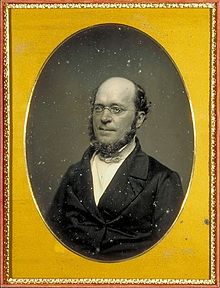
Henry James Sr., Henry Jr’s. father, was a theologian and then a Swedenborgian spiritualist after the defining spiritual experience of his life while sitting alone one evening in May of 1844 at the family dinner table after the meal, gazing at the fire. This experience was an apprehension of, in his own words, “a perfectly insane and abject terror, without ostensible cause” which initiated a spiritual crisis that lasted two years. This crisis finally resolved with his conviction that “the curse of mankind, that which keeps our manhood so little and so depraved, is its sense of selfhood, and the absurd abominable opinionativeness it engenders”. (This ‘abominable opinionativeness’ may perhaps be seen in all the criticism of his son Henry’s “amuzette” The Turn of the Screw.) It has been said that this spiritual crisis, and the ensuing lifetime spiritual search, caused the children of Henry Sr. to be raised in a neurotic atmosphere. Being raised in a neurotic atmosphere can cause mental illness, physical illness, or at best, a turning inward for eventual resolution as I believe happened only with Henry Jr., directly observable in his ‘novelette’ The Turn of the Screw.
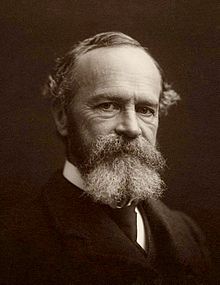
William James is known even today as ‘The Father of Psychology’ from his work The Principles of Psychology. He is also a well known and often quoted spiritual transcendentalist from his work The Varieties of Religious Experience. Even while contributing so much to the fields of psychology and spirituality, he suffered life-long and varied physical and psychological ailments, spending long periods of time contemplating suicide. A “neurotic atmosphere” in his upbringing? A failure of spiritual resolution in his life? It is interesting that Henry Jr. once stated that he always hated when brother William read one of his books and commented on it. Though they seemed to have had a close familial relationship, there seems to have been some discrepancy in their deeper understanding of things.

Alice James, the youngest child, also lived a life of neuroticism and physical ailment, dying at the age of 43 from breast cancer. Her struggle with suicidal and homicidal tendencies, and her urge to kill her father, make one wonder, though never openly acknowledged, whether she was sexually molested by Henry Sr. and perhaps even William, who wrote about, and to her, in an erotic manner, as well as drawing pictures of her in the same vein. Should this conjecture be true, it would seem that Henry Jr. escaped any involvement in this considering his generally rejected misdiagnoses of the cause of her physical and mental debilities: “Alice’s great energy and personality of intellectual and moral being puts before me what I was tremendously conscious of in her lifetime – that the extraordinary intensity of her will and personality really would have made the equal, the reciprocal life of a ’well’ person – in the usual world – almost impossible to her – so that her disastrous, her tragic health was in a manner the only solution for her of the practical problems of life – as it suppressed the element of equality, reciprocity, etc”. It’s hard to say, as usual, what was in the back of Henry Jr’s. mind in this statement, but it doesn’t seem to point to any consciousness of possible sexual molestation in Alice’s life – were there any.
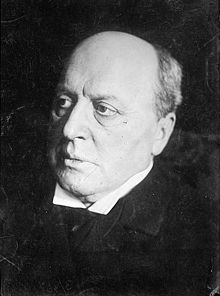
Henry Jr. had some sort of spiritual resolution during his life, I believe, and these are the reasons. At the age of 22 he wrote a scathing critique of Walt Whitman’s Drum Taps. Later in life, perhaps after reading the last line of the 14th stanza of Whitman’s poem, Song of Myself, “I and this Mystery, here we stand”, and recognizing this short line as the clearest, most concise, and exactly correct critique of his work, The Turn of the Screw, he would lovingly read from Whitman’s works to his friend Edith Wharton. He also publicly stated with deep regret “the gross impudence of youth” that caused the “little atrocity” of his disparagement of Walt Whitman in 1865. If you didn’t know, Walt Whitman was one of the truly enlightened souls produced by this land, and Henry Jr. at some point recognized this. James’ youthful impudence toward Whitman may perhaps be explained by the Zen edict, “If you meet the Buddha on the road, kill him”. Or, more benignly, “Put no head above your own”. Or as Jesus admonished those around him, “Don’t follow, walk beside me”.
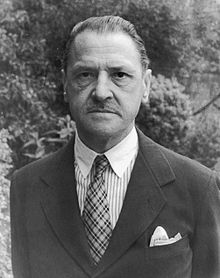
Another factor in my belief of a spiritual resolution in Henry Jr’s. life is James’ vitriolic critiques of Somerset Maugham, which I don’t believe he ever did recant or regret. James was certainly responding to Maugham’s disparaging remarks about James’ stories and novels, referring to them as “cobwebs which a spider may spin in the attic of some old house, intricate, delicate and even beautiful, but which at any moment the housemaid’s broom with brutal commonsense may sweep away”. Or, in another context he compared James with a mountain climber who, “simply to walk up the 206 foot high Primrose Hill, equipped himself with all the paraphernalia necessary to scale the 29,028 foot Mount Everest”. I didn’t give too much attention to the back and forth vitriol between James and Maugham for, as much as I enjoyed both Maugham’s book and the movie, The Razor’s Edge, I later came to write off Maugham for his waffling of his belief in the existence of God, even up to his last breath. Forever after I have viewed Maugham as a kid who plays Rock, Paper, Scissors using only two of the symbols.
The third factor is the meaning he propounds in The Turn of the Screw. Only a Zen koan given by an enlightened master to one of his advanced students (“If I am holding a stick, but it is not a stick, what is it?) demands with such intensity an internal resolution between ‘This’ and ‘That’ as does The Turn of the Screw.
So, Henry Jr. was definitely aware of the spiritual aspect of life, and perhaps, understandably, never mentions it outright due to the fact that two other older males in his family, his father and brother, were more or less beating this subject to death. Henry Jr. had to find some less direct, more subtle way of expressing his spiritual intuitions. Thus, The Turn of the Screw.

What is spirituality? It can most simply and easily be expressed as a numbers game. We are born into the world of Samsara, the world of ‘ten thousand things’, as Buddha says. In the beginning we are completely intoxicated with all this variety, and go about labeling all of these things. Soon we start grouping these things, such as the letters in the alphabet, the number of states in the United States, the different species of animals on our planet, etc. As time goes on we recognize, accept and use smaller and smaller groupings of certain categories. When we get to a point in our lives, and many of us do, where the concept of the 3-way breakdowns hold some degree of fascination for us, we have to the same degree entered the psychic level of spiritual development (very simply stated). Other 3-way breakdowns of life, other than the ones mentioned in the first paragraph of this introduction, are:
The Father | The Son | The Holy Ghost
Biosphere | Noosphere | Theosphere
Consciousness | Culture | Nature
Thesis | Antithesis | Synthesis
Means | Motive | Opportunity
Aesthetics | Morals | Science
Proton | Neutron | Electron
Tin Man | Straw Man | Lion
Buddha | Sangha | Dharma
Christian | Muslim | Jew
Past | Present | Future
Gross | Subtle | Causal
Earth | Human | Sky
Id | Ego | Superego
Solid | Liquid | Gas
Think | Feel | Do
I | We | It
There are more, of course, and some are more valid or meaningful than others, but these 3-way breakdowns represent the efforts of scientists, philosophers, psychologists, etc. to explain the way things work.
Should one become sufficiently fascinated with the concept of a 3-way breakdown of things, but still remain inquisitive, he will certainly stumble upon a fascination with the 2-way, or dualistic, breakdown of life:
Yes | No
Yin | Yang
Up | Down
God | Devil
Good | Evil
Right | Wrong
Wave | Particle
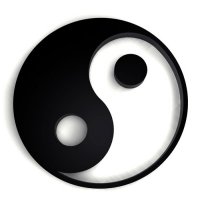 And so on. To whatever degree the individual fascinates on this concept of a 2-way breakdown of life, he/she enters the Subtle stage of spiritual development – and many of us have, to a degree, without even recognizing it. If some sense of wonder is produced in you, and maybe even a smile or chuckle elicits from you when you hear, “You can’t live with them, and you can’t live without them”, you have engaged and resolved this particular koan. And did you do this by scientific experimentation, or rigorous intellectual pursuit? No, you smiled or chuckled by letting go into this wonder. You, as Whitman, have said, “I and this mystery, here we stand”.
And so on. To whatever degree the individual fascinates on this concept of a 2-way breakdown of life, he/she enters the Subtle stage of spiritual development – and many of us have, to a degree, without even recognizing it. If some sense of wonder is produced in you, and maybe even a smile or chuckle elicits from you when you hear, “You can’t live with them, and you can’t live without them”, you have engaged and resolved this particular koan. And did you do this by scientific experimentation, or rigorous intellectual pursuit? No, you smiled or chuckled by letting go into this wonder. You, as Whitman, have said, “I and this mystery, here we stand”.
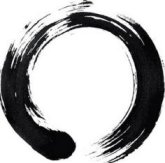 If an individual fascinates, or meditates on this concept of a 2-way breakdown of life with sufficient intensity, he/she will perhaps come into the presence of a spiritual guru who will give him/her a koan at the proper stage in the meditation, or he/she will happen upon a copy of Henry James’ The Turn of the Screw. This individual will agitate, or meditate intensely on the given conundrum, and if he refuses to relent, or give in to one form or another of intellectual masturbation, he/she will eventually be rewarded with a flash of intuition that resolves the two into one. This individual has now entered the Causal stage of spiritual development, and is rewarded with a smile and a chuckle that is exactly the same as John or Jane doe who responds in the same way to the ‘with/without’ conundrum, but to a more encompassing degree.
If an individual fascinates, or meditates on this concept of a 2-way breakdown of life with sufficient intensity, he/she will perhaps come into the presence of a spiritual guru who will give him/her a koan at the proper stage in the meditation, or he/she will happen upon a copy of Henry James’ The Turn of the Screw. This individual will agitate, or meditate intensely on the given conundrum, and if he refuses to relent, or give in to one form or another of intellectual masturbation, he/she will eventually be rewarded with a flash of intuition that resolves the two into one. This individual has now entered the Causal stage of spiritual development, and is rewarded with a smile and a chuckle that is exactly the same as John or Jane doe who responds in the same way to the ‘with/without’ conundrum, but to a more encompassing degree.
So, this was Henry James’ intention by writing this little ‘pot boiler’ – not to elicit hundreds of pages of vitriolic criticism, but rather to elicit a smile and a chuckle to those with the intensity to extract these. Here I will go back to one of poor misdirected Mr. Maugham’s criticism of James and make it spot-on by changing two words: The novels and stories of James are like “cobwebs which a spider may spin in the attic of some old house, intricate, delicate and even beautiful, but which at any moment the housemaid’s adept’s broom with brutal commonsense spiritualsense may sweep away”.
Happy sweeping!